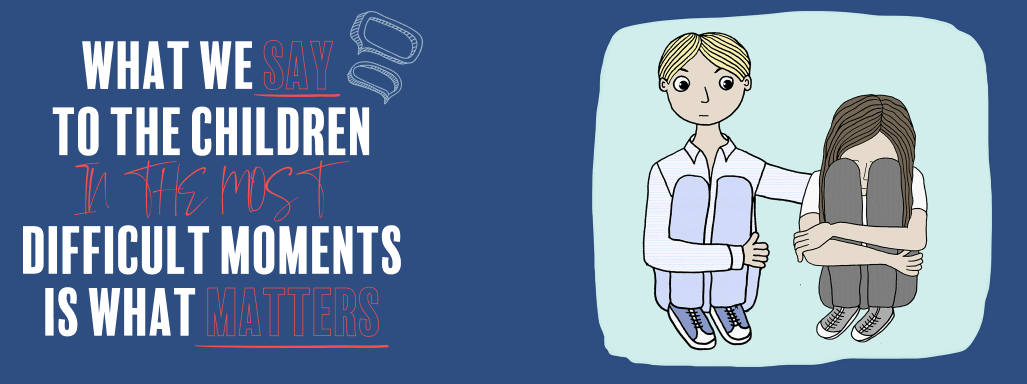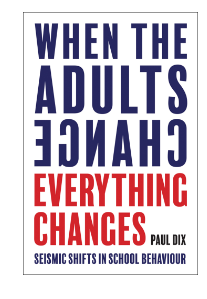- Home
- High-Quality Professional Development
- Trauma Informed Practice (TIP)
Trauma Informed Practice (TIP)

A trauma informed school is one that is able to support children and teenagers who suffer with trauma or mental health problems and whose troubled behaviour acts as a barrier to learning. Major public health studies have shown that when children who have suffered several painful life experiences, are unhelped, there is a very high chance of them going on to suffer severe mental and physical ill-health.
‘Rising numbers of children are presenting with mental health difficulties in schools and current teaching environments are struggling to keep up. Many children have a high ACE score (meaning multiple adverse childhood experiences) known to leave children at risk of mental and physical ill-health later in life and even early death' (The ACE study Felitti and Anda, a study involving over 17,000 people). With the cuts in CAMHS and with over 1 million children in the UK with a mental health problem, schools are often left holding the baby. Children spend 190 days a year at school so they are very well placed to pick up the baton and help these children.
With training, key staff can be empowered to respond effectively to mild to moderate mental health problems. The government Green Paper 'Transforming Children and Young People’s Mental Health Provision' (December 2017) wants a Mental Health Lead in every school (trained member of school staff). Their research found that appropriately trained teachers /teaching assistants can achieve results comparable to those of trained therapists. To quote, "There is evidence that appropriately-trained and supported staff such as teachers, school nurses, counsellors, and teaching assistants can achieve results comparable to those achieved by trained therapists in delivering a number of interventions addressing mild to moderate mental health problems (such as anxiety, conduct disorder, substance use disorders and post-traumatic stress disorder)”
The Adverse Childhood Experiences study, (ACE study) is one of the biggest Public Health studies of all time (17,000 people).
The study found that adverse childhood experiences are a leading determinant of the most common forms of physical illness (e.g. cancer, diabetes, heart attacks) mental illness (e.g. depression and anxiety) and early death in the Western World. ACEs are also a leading determinant of homelessness, drug and alcohol addition, smoking, domestic violence and all the major societal ills.
That said, a mass of research studies on social buffering, show that ‘protective factors’, namely interventions by emotionally-available adults, before the age of 18, can interrupt the trajectory from childhood adversity to challenging behaviour, learning difficulties, long-term mental, physical and societal ill-health.

A letter from the little girl who grew up. A speech by Olivia Taylor.
Olivia says "If you haven't already, train up on trauma-informed approaches. It changed my work and my practice and my view of myself" (7.58 mins into the video)

"If you want to create an inclusive school where children's behaviour is not only managed, but is changed as well, you should not miss out on reading this book." Sue Cowley, teacher and education author.
In When the Adults Change, Everything Changes: Seismic Shifts in School Behaviour, Paul Dix upends the debate on behaviour management in schools and offers effective tips and strategies that serve to end the search for change in children and turn the focus back on the adults.
When the Adults Change, Everything Changes illustrates how, with their traditional sanction- and exclusion-led methods, the punishment brigade are losing the argument. It outlines how each school can build authentic practice on a stable platform, resulting in shifts in daily rules and routines, in how we deal with the angriest learners, in restorative practice and in how we appreciate positive behaviour.
Each chapter is themed and concludes with three helpful checklists Testing, Watch out for and Nuggets designed to help you form your own behaviour blueprint. Throughout the book both class teachers and school leaders will find indispensable advice about how to involve all staff in developing a whole school ethos built on kindness, empathy and understanding. Suitable for all head teachers, school leaders, teachers, NQTs and classroom assistants in any phase or context, including SEND and alternative provision settings who are looking to upgrade their own classroom management or school behaviour plan.
Click on the link below to listen to a podcast interview with Paul Dix. The conversation with Paul starts at 4 minutes and 20 seconds.
Phil Naylor says about the podcast:
"This week’s guest is Paul Dix. Paul has written the hugely successful ‘When the adults change, everything changes’ and is an experienced teacher and a leading voice in education. What struck me in our pre-lockdown February half-term conversation is how much great advice for teachers there is within this book and how practical its application can be. Paul speaks humbly about his own practice in the classroom, his rationale for writing the book to help teachers like himself and how reading this book may change your view of how you approach behaviour but also of his approach. Lot’s of the debate on social media is quite binary, this approach is good that one isn’t. This behaviour expert is right, this one is wrong and the levels of praise or vitriol can be off putting particularly with new teachers.
This is a podcast to approach with an open mind, there will be something for you here whatever your current view on behaviour. You will hopefully see as I did, the common themes coming through from all the podcasts we have done on behaviour. I found Paul utterly charming and giving of his time and whilst I won't adopt everything we discussed, he really made me think about how to refine my own practice and that of the school. Thank you Paul."

